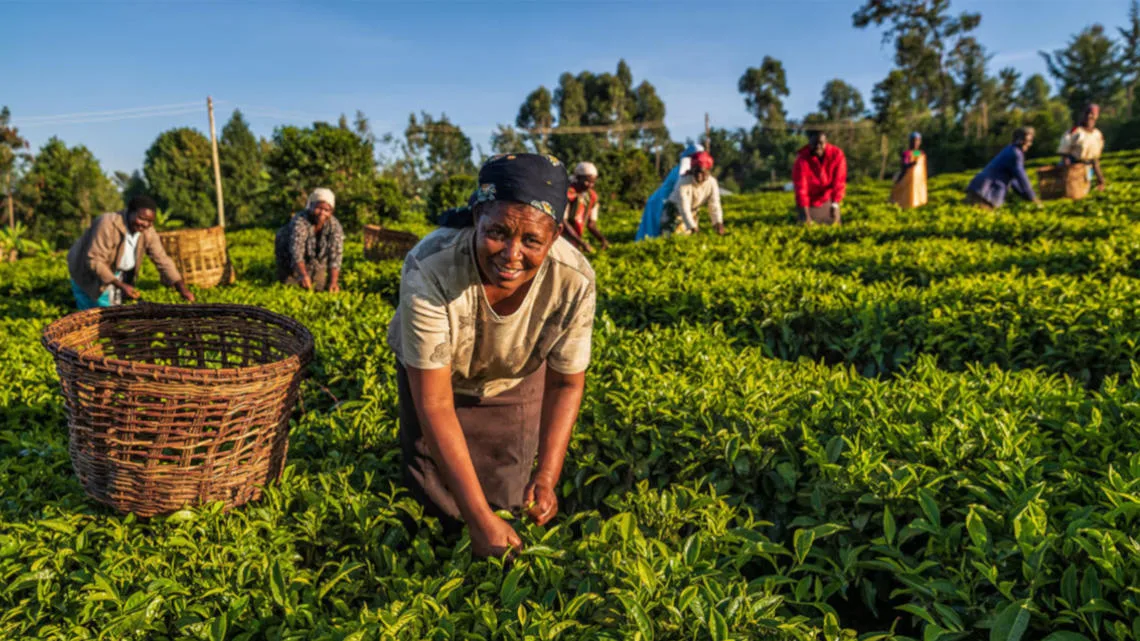Evaluating progress in Tanzania’s agricultural sector in two years

IN the corresponding period last year, I penned an essay over here, entitled; “Gains and misfires in the year 2023”, trying to reflect what happened in the last eleven months, both good and bad. Today, even as the year is at its tail-end, we want to see if there is a development or repetition of errors so far.
Please read here below and see whether we managed to capitalise on last year’s gains and if misfires were worked up on;
“As the year 2023 is coming to an end, we find ourselves in the position of being evaluators of our own conduct in the agricultural sector to determine whether there has been any progress so far that has been made”.
Mindful of the fact that this will be a tedious process that will require long essays, we will dedicate all the remaining weeks in this year, save for few disconnections that may happen on the way, analysing some of the memorable moments, decisions and acts to see whether there has been anything to congratulate ourselves for or draw lessons from failures we have registered with our own actions or inactions.
Entry point, Tanzania’s agricultural sector is vast and complex, anyone that needs to do any sort of surgical operation must be aware of the fact. It is never a tap-on-the-shoulder mission, but rather a serious work that requires thoughtful deliberation.
Fast forward to gains. For the first time in many decades, the budget for agricultural sector was neither doubled nor tripled, it was rather nearly quadrupled to the tune of 954bn/-, so that the country can increase production for domestic use and commercial purposes and reduce unemployment problem. It has been a long cry not for agricultural enthusiasts alone but for anyone wishing well for the country’s general wellbeing.
More so, the budget was highly focused on two areas, expanding irrigation and increasing youth and women inclusion in the most important sector. What makes this notable is the fact that youth and women hold the biggest component in the country’s population, any policy that fails to inspires them into the agricultural sector sends a very clear message sectorial suicide.
The misfire with this focus is that it failed to have a broader look on the entire value chain – from production to consumption – and instead largely focused on cultivation. While it is imperative that youth and women ought to be involved in that stage because the country’s production potential is highly under-utilised, young people Tanzania could also be involved in other areas like technology.
Many youths have a close access to technology and a positive view of the same. Equally important, majority of young people, with all the negative view of the agricultural sector, they have first-hand knowledge of challenges that are bedeviling the sector because are coming from families that are either crop producers or practicing animal keeping. Any initiative that tries to actualise the blend of the two (that is agriculture and technology), has got the highest chance of hitting the mark.
A simple example, computer technology has done tremendous revolutions in the world over, not just in communication sector alone but in medical and education as well, to name but a few.
But it is fair to admit that there are very few contributions in the agricultural sector, especially in African countries. Unless someone comes with a very convincing argument that Tanzanian young people are bankrupt of ingenuity, a need to integrate agricultural sector with technology is clarion call that shall never stop.
ALSO READ: Teak: The jewel of Tanzania’s agricultural sector
Another gain that we can count on is the stability that is with Tanzania’s trading community agricultural sector. It is never an easy thing to navigate through the murky waters of COVID-19 pandemic and Russia-Ukraine war that sent the world with shock waves. It takes the higher level of efficiency to be able to regain the lost energy. In this period, the world was fighting with supply chains.
There was a time when unavailability of containers (or boxes, as are popularly known) at the port of Dar es Salaam resulted into doubling of the price. Even then, it didn’t guarantee easy access to the boxes.
Anyone with an exposure to the global business environment, will agree with the fact that it is never an easy work to do business in the emerging economies like Tanzania, because there are no safety nets or systems to cushion the businesses in times of calamities. Save for few and distant measures that were taken by the power that be most of the survival measures were taken by the business communities themselves. You just have to give them thunderous congratulations for stepping in this year with tenacity and vigor and do the best they could to pull an entire value chain.
While we will continue with this matter next week, it is befitting to congratulate everyone, mostly farmers, for doing their best in making sure that the country remains food secure and that the Tanzanian population not just eat to fill their stomachs but take in the very nutritious food they can afford.





